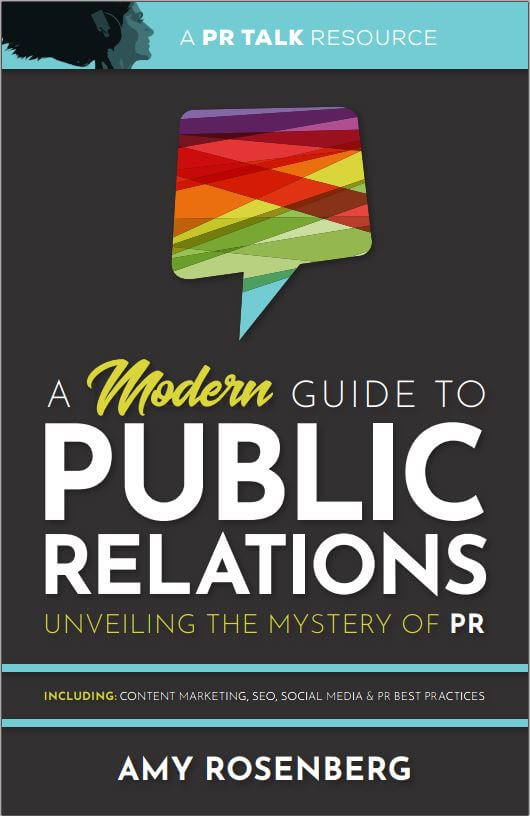A 5-Point-Guide to Maximizing the “Brains” at Your Disposal
There are many articles about how to become a thought leader. But if you’re in credit union marketing or PR, you need to know how to position one of the many “brains” within your organization as a thought leader. Sorry folks, not too many people want to hear from marketers, especially not the general public. Current and potential credit union customers want to know about financial and economic matters—things affecting their own bottom lines—subjects that a marketing person couldn’t, wouldn’t nor shouldn’t talk about.
Types of credit union thought leaders:
- Small business financing.
- Mortgage lending.
- Car loans.
- Personal finance.
- Family finance (getting kids to invest).
- Diversity experts to help include under-represented communities, such as loans for women business owners or mortgages for minorities.
- Your credit union’s niche area, such as teachers for credit unions focusing on teachers, veterans for credit unions focusing on veterans, or community ambassadors for credit unions focusing on a specific community.
- How general economics affects all of the above
Veracity’s 5-Point-Guide to Maximizing the “Brains” at Your Disposal
1. Hone your “Expert-Dar.”
Learn how to sniff out the people you should be positioning as experts. The main way to do this is to listen with an open mind. You never know who your expert might be. With so many topics to talk about, it’s more important than ever to keep your ear to the ground. Get to know people who can feed you the information you need by attending events, interacting with people, asking questions, and again listening with an open mind.
2. Build a rapport.
Once you’ve selected your experts make them your best friends. At the very least get comfortable talking with them so you can call them in a pinch. Try the following things to turn your “brain” into an approachable bestie:
- Talk to them at events and meetings.
- Take them to coffee, lunch or happy hour.
- Listen to them speak in seminars, classes and meetings. Talk to them about what they’ve said. Everyone needs a friendly face in the front row.
- Sign up to volunteer in their group if your credit union partakes in volunteering efforts.
- Simply ask to “pick their brain” as frequently as comfortable.
When you’re doing any of the above items, don’t talk at them, let them do most of the talking and listen intently. Imagine the kinds of stories you could pitch or articles you could place with the information they’re bestowing upon you.
3. Write it down!
Once you get them going, write down everything they say! Oftentimes when experts are rambling, they’re “giving” us the press release, article, media pitch, whatever! For this reason, I love it when my clients talk at me. We type down everything they say and use it later for a piece.
Be prepared to write things down constantly. For example, if you just need some quick info from your CEO but she’s in a chatty mood, let the conversation flow and write it all down because you can use the extraneous information for something else later.
Why talk at all if experts could just type out answers to your questions? Remember that you have the marketer’s insight and your expert does not. Important points that your expert quickly glosses over can be honed in on during conversation. I understand that time is limited so you’ll have to use your best judgment on whether or not to talk about each opportunity. After doing this for awhile, hopefully you will have a lot of copy you can re-use. Even more important, hopefully you’ll be getting opportunity after opportunity and you’ll all be so busy you just can’t talk about everything!
4. Convert your notes.
I understand if the idea of having to ghostwrite an article on behalf of your Board President sounds intimidating. But it doesn’t have to be if you’ve done the third step and are coming to the computer with a page full of notes. Don’t you see that you already have the piece? You just need to restructure it.
Time permitting, clean up the notes immediately while the conversation is fresh. Keep notes in paragraph format and organize by topic. As I run through my notes I’m thinking: “this is a good quote for a press release, this is some good fluff for a community-oriented blog post, and I’ll leave these economic stats in bullet point format because that will work better for an article or pitch.” Also, do you see how a five sentence pitch is actually an article introduction? Copy is copy! USE IT ALL!
5. Place your brain.
Honestly now we are at PR 101. If you are fully accessing the “brains” at your disposal, this part shouldn’t be hard at all. However, newbies may not know where to begin. That’s okay! We all start somewhere. For the most part, thought leaders should be placed in the following ways:
- Bylined articles in newspapers, financial journals or industry publications/websites. The topic should be of interest to your audience—they are not advertisements for your credit union or products. The only “plug” you’re getting is their name, company and title being listed as the author of that piece. Ideally, a headshot would run alongside the article. If you aren’t sure where to begin, tie into the seasons, national days/holidays, and editorial calendars.
- Quoted as a source in articles. Most likely the first few quotes stem from proactive pitches you’ve sent and then ideally a relationship is formed and you’re also being called to have your “brain” participate in articles. If you aren’t sure where to begin, tie into the seasons, national days/holidays, and editorial calendars.
- Speaking engagements at industry, financial or community events. The more often you’re placing bylined articles and quotes from your “brain,” the more clout your expert has, thus the easier this should be. Send pitches and proposals on behalf of your expert to event organizers.
I know I have glossed over #5 here but there is a wealth of information on our blog and podcast, PR Talk. Arm yourself with knowledge before embarking on your first thought-leadership campaign!
What More? Here is the full version of the Thought Leadership for Credit Unions video:
This episode of PR Talk is brought to you by PRSA Oregon
Throughout Oregon and Southwest Washington, PRSA provides members with networking, mentorship, skill building and professional development opportunities – whether you are a new professional fresh out of college or a skilled expert with 20 years in the industry. Check out PRSAoregon.org for more information on how membership can help you grow and connect.
PR Talk is sponsored by monday
In such a fast-paced, multi-faceted work environment, it can be tough to stay on top of everything. monday is the collaboration tool trusted by businesses of all kinds to help cut down the clutter and streamline productivity. Learn more at monday.com and signup for a free trial. You’ll see in no time why so many teams around the world are choosing monday for their project management needs.
PR Talk listeners can use the coupon code BetterExecute for a 15% discount.











